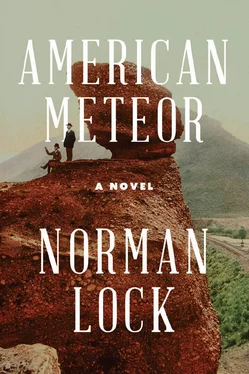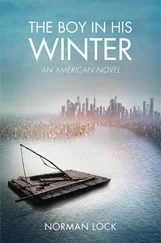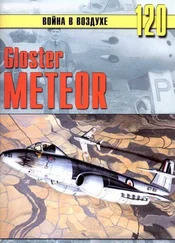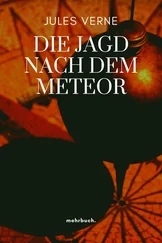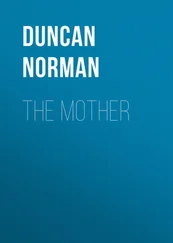William Henry Jackson had little interest in the ceremony of industry and progress enacted at Promontory Summit — frankincense and myrrh replaced by the profane stink of whiskey and sweat. Had he been there, Whitman would have been driven mad by his rough camerados. Jackson had already made enough icons of light and shadow to satisfy Durant, who’d hired him instead of me as the Union Pacific photographer. I held no resentment for either man, knowing Jackson to be the master of the art I now wished to practice, if only in a small way. Months in the studio with his brother had showed me how far I’d have to travel to be anything more than an apprentice. When I first laid eye on William, he had turned his camera toward a pyramid of rock, reminiscent of Giza’s, rising from the horizon, well beyond the giddy jamboree. At twenty-seven minutes past two, when Stanford and Durant let fall their hammers to drive home the ceremonial spikes, the two locomotives that, until that instant, had existed as the potential of an idea for the transformation of America became the embodiment of an energy as ferocious as the atom’s, unleashed in 1945 in the Jornado del Muerte.
Patience, Jay! All will be revealed in time, as it was for me by Crazy Horse. I’ve been as likely to misunderstand what I saw and heard as the next human. But I believe in Crazy Horse’s dreams. Stanford and Durant, by the way, both missed their gold spikes, in a moment of low comedy not conveyed to San Francisco or Washington by the laconic message telegraphed from the wedding of the rails: “Done.”
Lincoln had pushed the completion of the transcontinental railroad. He thought it would strengthen the Union by speeding the incorporation of territories west of the Mississippi and help heal the nation after war. On the map, the nineteen hundred miles of track from California to Council Bluffs look like an ugly scar cut across the belly of the West, as if whatever was waiting to be born of all that money and travail had to be wrested from the Great Mother’s womb. Indians believed she died of it, and all that was nourished by her generous belly and tits — the plenitude of milk and honey that had made the aboriginal land a paradise — died afterward. From what I’ve seen with my own eye and in the dreams sent me, the Indians were right.
That night, I went to Jackson’s tent to introduce myself. He was absorbed in a negative he’d made that afternoon of the jagged peaks in the distance. I watched him pore over the eight-by-ten-inch plate, one eye squinting through a jeweler’s loupe.
“There’s an advantage to having just the one eye,” he said, making no other overture to the stranger who’d entered his tent without invitation. He hadn’t looked up. He appeared to take no notice of me in the uncertain light of the kerosene lamp, yet he’d seen enough to know I wore an eye patch. My face must have showed my amazement, like that of someone who’s witnessed a parlor trick he can’t explain. “One eye makes it easy to look through the camera or glass,” he said, putting down his loupe on the trestle table. “And you’ll never have to squint to consider some small detail of the picture.”
“How did you know I want to take pictures?” I asked, under the influence of his uncanny performance.
“I saw you watching me during the high jinks this afternoon. You were too intense for someone with only a casual interest in the ‘mysteries’ of the profession. Although the mystery has been debunked by familiarity, and a photographer isn’t the curiosity he used to be in the days of the daguerreotypist, when a crowd would gather just to see his head vanish behind the black drape. We were considered magicians then. But after a million views, the novelty’s worn off.”
His glance swept the negatives laid on the table and then lifted to take me in. I found his eyes hard to meet. But I did meet them, impudently, as if he were himself a photographic subject about to be pierced by the camera’s all-seeing lens.
“I know who you are.”
“Who?” I said sharply and much annoyed.
Jackson liked to be mystifying, the same as anyone who conjures. But my admiration was enough to satisfy him. I didn’t need to truckle — he’d have hated me for it. From the first, I sensed that his pride was not in himself but in his gifts, which he willingly shared with those who treated them seriously. If he’d tried to lord it over me, I’d have turned on my heel and left — never mind that I needed him. His brother had nothing more to teach me. Already, I knew I wanted to make pictures of real things and real people — not prettifying portraits of flowers or “stiffs,” which was how Edward referred to customers whose rigid poses were as lifelike as the dead men’s he was sometimes asked to photograph.
“Stephen Moran,” he said with a becoming smile. He laughed, and then he admitted that Edward had wired him to expect a visit from me at the summit, if I had the nerve. “My brother’s been writing to me about you. He says you’ve the makings of a first-class photographer.”
Those words gave me more pleasure than anyone else’s had up to that time, not forgetting General Grant’s when he gave me my medal. Just so you know, I only wore it twice after he sent it back to me. And when I outgrew my Union sack coat, I gave it to an Indian, who used to slink around Omaha buttoned up in it, begging for liquor.
“So tell me, Moran: Why do you want to be a photographer?”
He would ask that question several times during the nearly two years we traveled together. I don’t think my answers ever satisfied him completely.
“You can tell a lot about your subject by studying the negative,” he said, holding it to the light again.
I kept silent, knowing I was about to receive my first master lesson in the photographic — some say “art,” others, “science.” I began by thinking it the former; in time, I came to think of it as a science; lately, I’ve come to consider it a faith. Jackson handed me the glass plate. I held it to the light and studied it with my one good eye.
“Tell me what you see.”
“A mountain range in the distance. In the foreground, a group of white tents. Emptiness in between.”
“Good. But you must learn to look deeper.”
He spoke almost gently. If he’d been sharp, the shell where my raw self resided like an oyster would have broken. You’d have thought the tender organ of someone without a childhood would quickly become hardened. But I possessed the child’s eager and easily wounded heart. In my lifetime, I’d been shown little enough kindness, except by my mother, who died too soon to fortify me against the meanness of the world. It weakened me, but it did not undo me. I could be as cruel as the world is. To use a figure from a later time, I was resistant, like a virus that fire and ice ought to annihilate but can’t in spite of its insignificance.
“What do I see?” I asked in a tone of voice that bespoke not servility, but the disciple’s acceptance of criticism. I was twenty — the age when boys feel themselves licensed to rebel against authority. But I was ready to be chastened. I wanted to follow him into the wilderness.
“You see the invisible made visible,” he uttered with the solemnity of a Hindu swami. “Moran, you see the bones of the world.”
I had no idea what he meant — and wouldn’t until I saw Hand mit Ringen , the first X-ray picture, taken by Wilhelm Röntgen of his wife’s hand, in an 1897 issue of Scientific American .
“If you’re interested only in recording the scenery, I don’t have time to waste on you.”
I felt as though I were picking my way through a field of Confederate “torpedoes.” A misstep would nip my prospects in the bud. Already I sensed that photography could be about something more important than stiffs or scenery, but I couldn’t have put it into words — not then or this morning, so many years later. Once in a great while and mostly by accident, I’d glimpse the quicksilver thing that Jackson sought with his camera; but I never caught on, you see, never really understood the spiritual thing he was after. My instincts were good; my technique was sound. I could capture a subject down to its broken shirt button and the mole in the shadow of the jaw, but for all my virtuosity, the life was no more than a facsimile. The picture wasn’t dead; neither was it alive. It lacked. vitality. No, I was never more than a second-rate cameraman. I had sense to know, however, that my future depended on the success of my catechism. I had not the slightest idea why this should be, but I was right. Jackson was waiting for an answer (it was a question he’d left hanging in the air, even if he hadn’t framed it as one), but I had none to give.
Читать дальше
